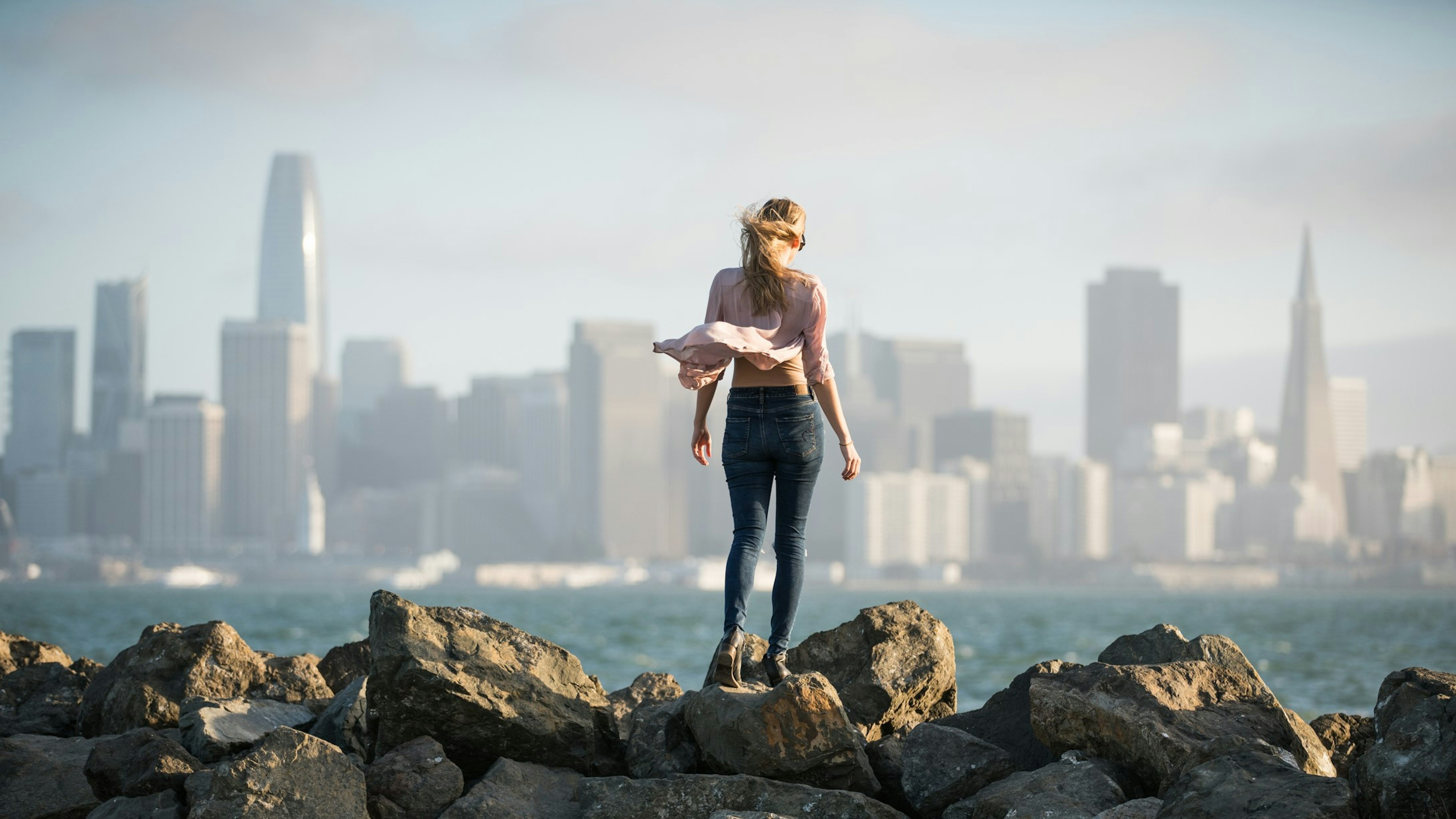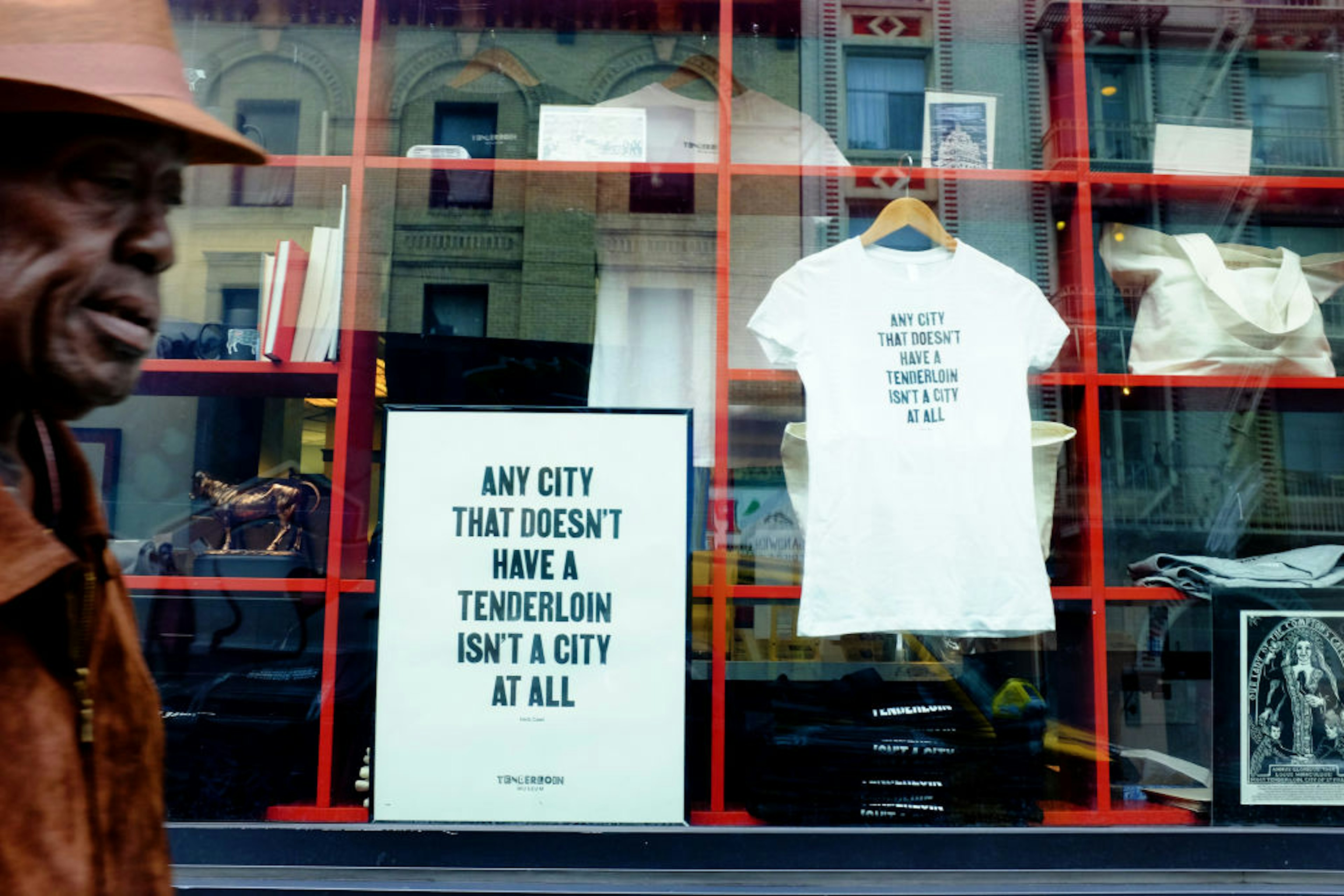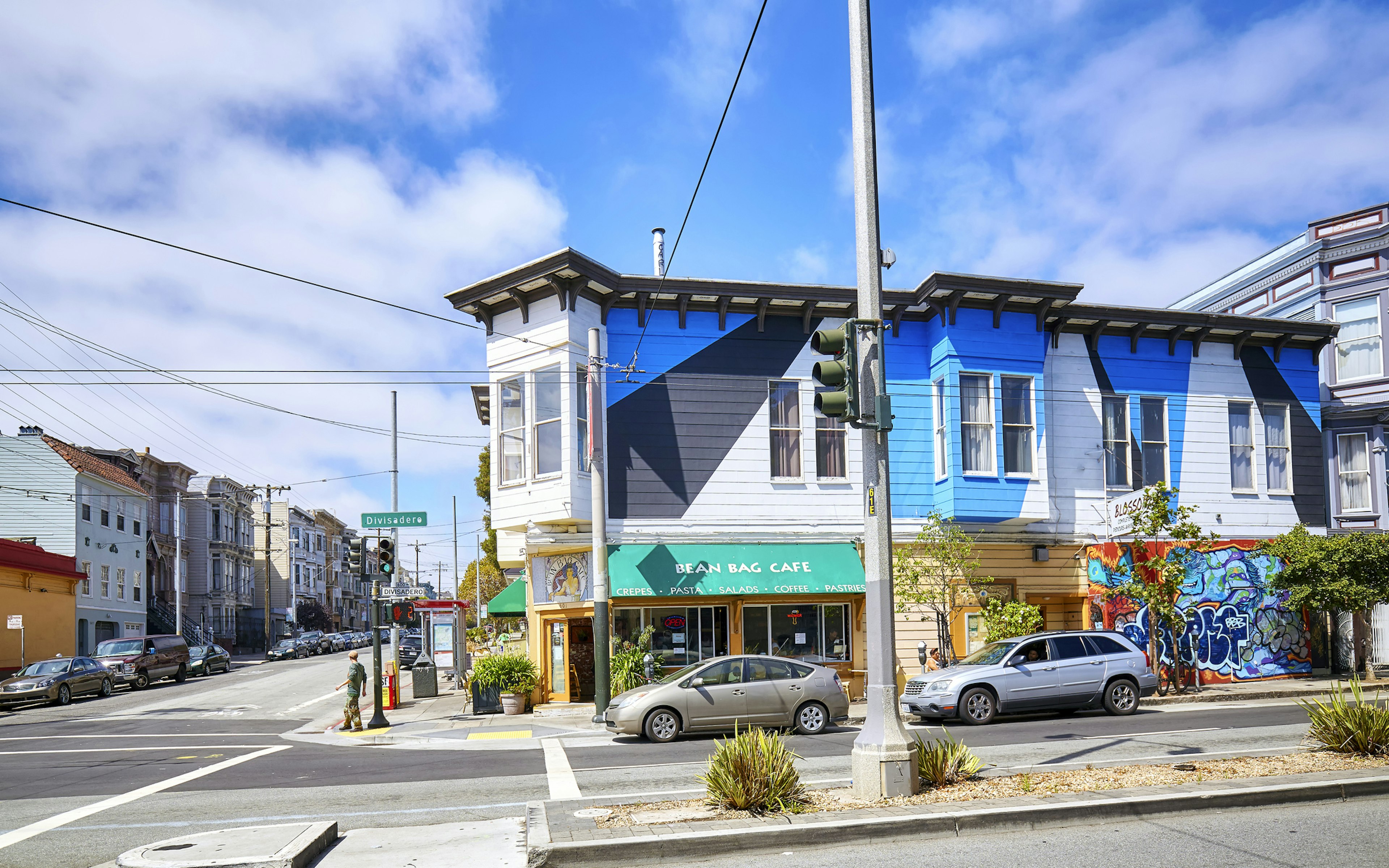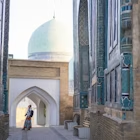

San Francisco's distinct neighborhoods are all worth exploring т even the lesser-known ones ТЉ Alexander Spatari / Getty Images
It's easy to find recommendations for typical first-time San Francisco visitor experiences.
Fisherman's Wharf, Pier 39, Union Square, Chinatown, North Beach, Haight-Ashbury, the Castro and Golden Gate Park are all wonderful, and each has both well- and lesser-known attractions worth seeking out. However, the compact city still has several other neighborhoods begging to be explored, from an artificial island within city limits to attractions on the residential west side.
Here are the best neighborhoods in San Francisco to taste amazing international food, explore locals' favorite green spaces, hit up personality-filled bars, and see what else the City by the Bay has to show for its wild west boundary-pushing spirit and welcoming, diverse communities.

1. Treasure Island
Best new neighborhood for unbeatable city skyline views
Close to the halfway point between San Francisco and Oakland is the 400-acre Treasure Island, created as an artificial land mass for the 1939 Golden Gate International Expo. Its role since has included being a seaplane harbor for Pan-Am airlines and a decades-long naval base. Treasure Island became an official residential SF neighborhood in 1997.
Though peaceful and quiet at times, island living also had limited resources, with just one grocery store and often just one restaurant. That said, the view of the SF downtown skyline т especially from Avenue of the Palms т is unbeatable, and the island is now in the early years of a 20-year development plan that includes housing, hotels, parks, restaurants, and more. One completed aspect is the ferry you can hop on for a fast 10-minute ride to the island (or take the trusty 25 MUNI bus from the Salesforce Transit Center downtown). More advanced cyclists can also . A SF bike path to Treasure Island may be built in the future.
Just beyond the official Treasure Island entrance is the commanding art deco Building One. Inside is for beer, wine, and empanadas. The building also has the free , which has artifacts from the World's Expo and contemporary island history. Dine and play bocce ball on the Great Lawn, next to the water, at , which also houses in collaboration with . Enjoy an outdoor fireside brunch at . For more drinking, walk to or . For less drinking and more activities, consider renting a paddleboard or kayak from the nonprofit . Since the island is under rapid development, check the status of places you plan to visit before heading over.
Hotels on Treasure Island are being built, so you're currently best off in accommodations close to the Ferry Building or downtown, the easiest being both chain and boutique hotels. Prices will be higher, but you'll also be close to other popular city attractions and neighborhoods like Union Square.
Wondering where to eat? Check out our favorite recommendations for San Francisco

2. Broadway and Columbus in Chinatown/North Beach
Best neighborhood to experience Chinese, Italian, Beat Generation and red-light district history
While this area is part of well-known tourist beats, you can experience much of SF's history in a short amount of time and with minimal walking from the intersection of the hilly Broadway St and Columbus Ave, at the intersection of , Italian and Beatnik North Beach, and the red-light district strip club area along east Broadway.
Beat poet Lawrence Ferlinghetti's City Lights Bookstore anchors the northwest corner of the intersection, boasting three floors of progressive literature and plenty of copies of Allen Ginsberg's Howl. Next to City Lights is Beat Bar and the aptly named Jack Kerouac Alley. Cross east on Columbus to the Beat Museum, which is chock full of memorabilia, then southward to the hepcat bar. Just south of Specs, you'll begin to discover North Beach's Italian history, with the century-old and its signature dark red leather interior and top-notch cocktails.
Further north on Columbus, you'll go deeper into North Beach with espressos, which have fueled inquiring minds since 1956. Keep going north to for a memorable meatball sandwich, for some of the best pizza in SF, or for its famous focaccia. Order any of the recommended food for takeout to sit in Washington Square Park to people-watch and mingle with artsy old-time residents still contributing to the city's character thanks to their rent-controlled apartments.
If resetting back at the starting intersection, walk several yards west on Broadway into Chinatown at dinnertime to eat savory soup dumplings from the reputable , or a cocktail from the intimate upstairs. Slightly further west, near Stockton St, is the famed yet casual for Cantonese seafood dishes such as crispy salt-and-pepper prawns. A couple blocks south is the 60-year-old , where samples of hand-folded treats are aplenty. Cross the alley for art gallery to learn more about contemporary Chinatown, then 1ТН blocks east on Jackson to the revamped for burlesque shows or Chinese opera performances.
If your travel group consists of all adults, venture east on Broadway from the starting intersection, where many of the city's strip clubs go live at night т echoes of the city's unruly "Barbary Coast" days, when the area was a red-light district with dance halls and jazz clubs alongside its brothels. If nothing else, check out the right on the corner. It's the first SF strip club to gain status (a program that recognizes "longstanding, community-serving businesses") and holds claim to being the first topless club in the country, thanks to legendary dancer Carol Doda. If you get into the Broadway vibe, also consider nearby .

3. The Tenderloin and Little Saigon
Best neighborhood for early SF LGBTIQ+ history
The Tenderloin gets a bad rap. Parts of it are rough, but it's also a neighborhood filled with culture, delicious food, artists, cool nightlife, young families, and fierce community advocates giving the neighborhood a resilient vibrancy. With a high density of supportive housing like single-room occupancy units (SROs), and committed charity work by neighborhood organizations such as , many people experience poverty and homelessness in the Tenderloin, some of whom may be susceptible to substance addiction and mental health crises. Although it's generally not a safety concern for visitors, it's something to be aware of. Just use common sense when traveling through the neighborhood, wear closed-toe shoes, and don't mind the smell in some areas. Most folks on the street are minding their own business.
While first-time visitors may not want to put in volunteer orientation time at a neighborhood soup kitchen (a good way to get to know the neighborhood), try to attend a famous, jubilant Sunday morning service at , regardless of your religious leanings. Visit the ($10 general admission) for a better understanding of the Tenderloin's role in jazz, queer, immigrant, and sex worker history. If you want to know more but would feel more comfortable with a guide who knows the area, book a museum-led neighborhood walking tour ($10).
Two blocks west of the Tenderloin Museum, food is plentiful along Larkin St in Little Saigon, from a hearty $5 Saigon Sandwich Shop takeout bУЁnh mУЌ (cash-only) to modern Northern Vietnamese cuisine at . Eat more at for comforting lentil soup, for a slice of pizza topped with ingredients from local businesses, including .
Experience earlier vestiges of queer SF history by attending a drag show at the nearly 40-year-old , just around the corner from the former , the location of a 1966 uprising predating NYC's Stonewall. Newer jazz clubs and pay tribute to the area's jazz legacy.
Some hotels in the area are SROs, so research carefully. Consider the rock' n' roll (which also throws legendary pool parties) on the southern end near Market St, if you're on a budget, or hotels in the neighboring Theater District or Union Square.

4. Divisadero Street
Best neighborhood for independent eating, drinking, and live music venues
Along a stretch of Divisadero St (or just "Divis"), running northтsouth from Golden Gate Ave to Page St, you can have a full, locals-heavy nightlife experience within seven straight (if slightly hilly) city blocks or less. Divis is part of the Western Addition neighborhood, but more recently also runs along the eastern border of the newer, trendy neighborhood designation of NoPa (North of the Panhandle), coined in the aughts. Once you take a rideshare to the area or MUNI bus 24, it's easy to spend an evening eating, drinking, and being musically merry in some of the city's best places.
From the top near Golden Gate Ave and going south, dig into Southern comfort food at , barbecue and chicharrones (fried pork belly) at the spacious , or a takeout slice of bulgogi and kimchi sourdough pizza from , then Ethiopian food, drinks, dancing and live music at the historic . Or center the night around a midsize indie rock or hip-hop show at the non-corporate , first with well-executed cocktails at the Arts and Crafts movementтinspired , then sweaty dancing at the intimate or relaxed drinks at . There are numerous itineraries to create for yourself along Divis, and all guarantee a good time.
A few boutique hotels, such as the and bed-and-breakfasts including dot the neighborhood, as well as Airbnbs, mostly in Victorian properties.

5. Bernal Heights
Best low-key alternative to the Inner Mission
Bernal Heights is a tight-knit residential neighborhood that's also chock full of personality-filled dive bars т many with quality local live music т plus excellent food to eat before or in between. Bernal is like a more laid-back outer extension of the Mission District (not to get mixed up with the actual Outer Mission neighborhood, 3 miles south on Mission St.).
The corridor of Mission St between Cesar Chavez and 29th St in particular has a cluster of bars. The scenes skew punk and hipster, but are welcoming to all. The international food options are within and beyond the cluster, in both directions. Grab a simple, hearty pasta at the whimsical , beefy, saucy lomo saltado (Peruvian beef stir-fry) at the group-friendly , hard-to-find grilled nem nuong (grilled meatballs) at , or Detroit-style square pizza at the brewpub . Then head to the cash-only, dimly lit for organ-based bands or a quiet time on the romantic back patio; the queer-friendly for raucous backyard parties and performances; dance-worthy DJ nights at the space-themed ; or for a punk show and boilermaker (beer cocktail).
If you're heading a bit south on Mission, preface the night with a visit to the punk-leaning and eat the original SF Indian pizza at . If you're going a bit north of the dive bar cluster, enjoy pillowy pita and a strong Turkish coffee at the family-owned . Either way, also consider going two blocks west of the strip (a five-minute walk) to local favorite (don't forget to grab a number near the entrance), which is open until 11:00pm and is known for its Asian flavors like macapuno (a type of coconut).
As Bernal Heights is residential, accommodations will skew toward vacation rentals like those on Airbnb, but also consider the bed-and-breakfast half a mile north.

6. The Sunset and The Richmond
Best neighborhoods for Asian food
While San Francisco is a small 49 sq miles, many transplants and visitors hesitate to travel "far" to the largely residential westside. However, the ocean-bearing half of SF is a gold mine of casual Asian and other international eateries, and there are green spaces to explore that give a deeper understanding of the city. Major westside neighborhoods include The Sunset, which lies below Golden Gate Park, and The Richmond which lies above it. Both have inner and outer sections separated by busy 19th Ave, which runs northтsouth. While containing a diversity of ethnicities, Clement St in The Richmond is known as the city's second Chinatown. Irving St in The Sunset could also be considered a third one. In recent years, the Chinese Historical Society of America, in conjunction with the Western Neighborhoods Project, created exhibits about and т sharing more widely the long-known local knowledge about these bustling communities.
While there are several pockets of deliciousness, Clement St eats include the cash-only takeout , Chinese and other Asian groceries galore at New May Wah Supermarket, century-old German bakery and pioneering for tea-leaf salad. Going south to Noriega St reveals more food clusters, especially between 19th and 33rd Aves, including top Hong Kong diner , Chinese-Vietnamese-Cambodian noodle house Thai Nghiep Ky Mi Gia, and real-deal Cantonese barbecued meats from Cheung Hing. In The Sunset, the food intersection around 19th Ave and Irving St is a classic. Chomp down on five-spice chicken garlic noodles at , giant beef rib pho at , and flaky-topped, butter-filled Hong Kong pineapple buns from .
After the abundant eats, visit some westside green spaces. Upper Outer Richmond houses the wild, rocky Lands End for easy-to-moderate hiking, plus vestiges of old San Francisco like Sutro Baths and the Camera Obscura at the Cliff House. Take a long walk along windy Ocean Beach, or settle down by a beach fire pit (). Close to the Noriega food strip are the mosaic-covered and the related nearby. Some of the westside attractions are also part of the citywide that spans San Francisco from the southeast to the northwest.
Accommodations include a handful of beachside motels along Ocean Beach, though visitors wanting more updated accommodations should consider vacation rentals via VRBO, Airbnb, and similar booking sites.

7. Bayview-Hunters Point (BVHP)
Best neighborhood for Black-owned businesses
Bayview-Hunters Point is an oft-ignored part of SF, tucked away in the southeastern corner of the city. The Hunters Point Shipyard once boomed during WWII, providing job opportunities for many Black families during The Great Migration. Post-war decline of the yard and the US Navy's leftover toxic waste left the area less desirable and hazardous to residents' health. That said, there have been environmental clean-up and revitalization efforts.
The 3rd St business corridor, part of the , ranges from the historic to new-wave coffee. The district also sponsors community programming from block parties to , which you can see along 3rd St and other parts of BVHP.
Pop over to Quesada Ave off 3rd St to see ground zero of the т a thriving resident-led community garden founded in 2002 to enrich the historically down-and-out area. Take brunch at to indulge in its famous fried chicken and waffles, a menu item brought over from popular (but now-closed) sister restaurant Auntie April's. Further north on 3rd St is a new Thursday farmers market with an emphasis on local Black vendors, sponsored by food justice nonprofit . Take dinner at jazz-themed supper club , run by local at-risk youth.
Another area of BVHP to visit is the old shipyard, which now houses and whose studios are regularly open to the public. Walk one block northwest on Innes Ave (bordering the India Basin neighborhood) to have a sauna session and wind-down at the locally well-known Russian bathhouse, then feel re-energized to climb the 87 tiled steps of the (aka the Arelious Walker Stairway) a few yards away.
Also nearby is , described as "the Nordstrom of dispensaries" and the first SF weed dispensary independently owned by a woman of color. is just steps away, and serves house-baked granola and food from local vendors. Cross the street to peep at the historic . Otherwise, take a five-minute walk north to for a brief shoreline stroll that previews what further development plans look like. Further north along Evans Ave is taproom, where you can get a barrel-aged stout blend or its classic Prohibition Ale.
The neighborhood and those around it tend to house multigenerational families with several cars per household, so parking can be hard to find. Consider staying downtown close to the MUNI metro T Line that travels directly into Bayview along 3rd St. There are a handful of vacation rentals in the neighborhood, but expand your options by also considering the nearby Dogpatch neighborhood to the north.
Still planning your trip to San Francisco:
See when to plan your visit
Wondering what to do? Here are our top picks
Know these 12 things before visiting San Francisco
Explore related stories

LGBTQIA+
Pride 2024: celebrate in these 10 LGBTIQ+ neighborhoods across the USMay 22, 2024 тЂ 7 min read


 Destination PracticalitiesA first-time guide to Tahiti and French Polynesia
Destination PracticalitiesA first-time guide to Tahiti and French PolynesiaDec 4, 2024 тЂ 9 min read



 Destination PracticalitiesThe best ways to get around Utah's wide open spaces
Destination PracticalitiesThe best ways to get around Utah's wide open spacesOct 11, 2024 тЂ 5 min read



